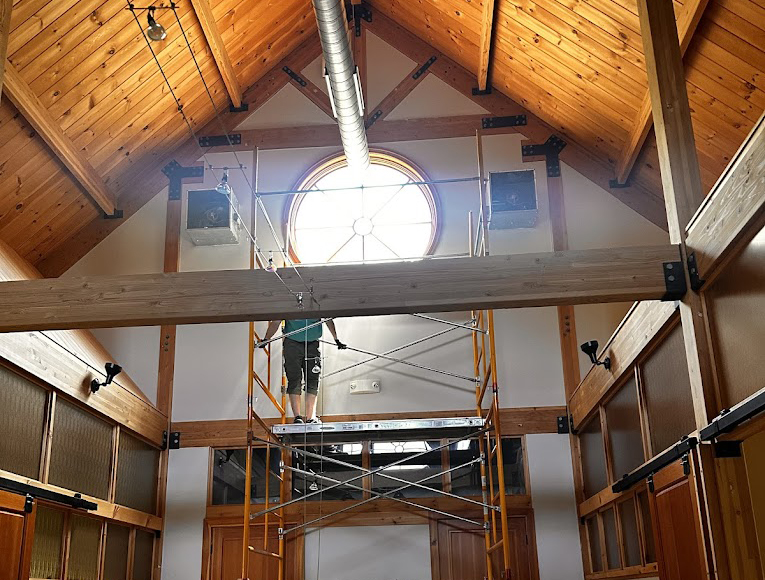
Windows play a crucial role in a home’s comfort, energy efficiency, and overall aesthetics. Over time, windows deteriorate due to weather exposure, wear and tear, and outdated materials. Knowing when to replace your windows is essential to maintaining a comfortable and energy-efficient home.
This guide will help you identify the key signs that indicate it’s time for a window replacement and explain the benefits of upgrading to modern, high-performance windows.
Common Issues with Aging Windows
Older windows can develop a variety of problems that impact their functionality and performance. Recognizing these issues early can help prevent higher energy bills, poor insulation, and security risks.
1. Visible Damage and Decay
Wooden window frames are prone to rot, warping, and cracks due to moisture exposure. If the wood is soft, crumbling, or has visible mold, replacement is likely the best option.
2. Drafts and Air Leaks
If you feel drafts near your windows, it means the seals have deteriorated, leading to heat loss in winter and heat gain in summer. This forces your HVAC system to work harder, increasing energy costs.
3. Condensation Between Panes
Double or triple-pane windows can lose their insulating gas over time, causing condensation between the glass layers. This means the window is no longer providing proper insulation and should be replaced.
4. Difficulty Opening or Closing Windows
Windows that stick, jam, or don’t stay open indicate issues with the frame, hardware, or balance system. This can pose safety concerns and impact ventilation.
5. Increased Noise Pollution
Older windows with single-pane glass provide little noise insulation. If outside noise has become more noticeable, upgrading to double or triple-pane windows can improve soundproofing.
6. Rising Energy Bills
Poor insulation from outdated windows allows heat transfer, causing HVAC systems to work harder. Energy-efficient windows with modern insulation technology can significantly reduce energy consumption.
7. Outdated Aesthetic and Functionality
If your windows look outdated or no longer match your home’s style, replacing them can enhance curb appeal and increase property value.
The Risks of Delaying Window Replacement
Postponing window replacement can lead to a variety of issues:
- Higher Energy Costs: Inefficient windows contribute to excessive heating and cooling expenses.
- Structural Damage: Rotting frames and deteriorating seals can lead to water infiltration, mold growth, and further home damage.
- Security Risks: Damaged or difficult-to-lock windows make homes more vulnerable to break-ins.
- Reduced Comfort: Drafty windows create uneven indoor temperatures, reducing overall comfort levels.
Upgrading your windows at the right time prevents these issues while improving your home’s efficiency, security, and aesthetic appeal.
Benefits of Replacing Windows
Replacing your windows comes with a wide range of advantages that go beyond aesthetics. Here are the key benefits:
1. Improved Energy Efficiency
Modern windows are designed with advanced insulation materials, including double or triple glazing, low-E coatings, and gas-filled panes. These features reduce heat loss in winter and heat gain in summer, leading to lower energy bills.
2. Enhanced Home Comfort
New windows eliminate drafts, maintain consistent indoor temperatures, and improve ventilation, creating a more comfortable living environment.
3. Increased Security and Safety
Old, worn-out windows are often easier to break or force open. Modern windows come with reinforced frames, impact-resistant glass, and advanced locking mechanisms for enhanced security.
4. Noise Reduction
High-quality replacement windows with double or triple glazing help block out street noise, making your home a quieter and more peaceful place.
5. Higher Property Value
Replacing outdated windows can increase your home’s market value. Buyers appreciate energy-efficient and aesthetically pleasing windows that require minimal maintenance.
6. Reduced Maintenance
Modern windows are built with durable materials like vinyl, fiberglass, and composite frames that require little to no maintenance compared to traditional wooden frames.
7. Protection from UV Rays
Low-E glass coatings in new windows help reduce UV radiation, preventing furniture, flooring, and artwork from fading over time.
How to Choose the Right Replacement Windows
When selecting new windows, consider the following factors:
1. Energy Efficiency
Look for windows with ENERGY STAR® certification, low-E coatings, and multi-pane glass for maximum insulation and efficiency.
2. Frame Material
- Vinyl: Affordable, durable, and low-maintenance
- Wood: Classic and stylish but requires upkeep
- Fiberglass: Strong, long-lasting, and energy-efficient
- Aluminum: Lightweight and modern but less insulating
3. Window Style
Choose a style that complements your home’s architecture, such as double-hung, casement, bay, or picture windows.
4. Installation Quality
Proper installation is key to ensuring your new windows perform as expected. Work with a professional window installer to avoid leaks, drafts, and structural issues.
Consulting a Professional for Window Replacement
If you’re unsure whether your windows need replacement, consult a professional. An expert assessment can help you determine the best options based on your home’s structure, energy needs, and budget.
Why Hire a Professional?
- Ensures proper measurement and fitting
- Provides expert advice on materials and styles
- Offers warranty protection and professional installation
Conclusion
Replacing old, inefficient windows enhances your home’s energy efficiency, security, comfort, and aesthetic appeal. Recognizing the signs of window failure early can help you make an informed decision before issues escalate.
If you’re experiencing drafts, high energy bills, or deteriorating window frames, now is the time to consider upgrading your windows. Contact a professional window replacement specialist to explore your options and enjoy the long-term benefits of modern, energy-efficient windows.